Top 7 Effective Strategies for Small Business’ Online Marketing
How can you master online marketing for small businesses without spending a fortune? This article tackles that question head-on, presenting you with cost-effective online marketing strategies that small businesses can implement immediately. Discover how to define your growth goals, captivate your audience with engaging content, and build lasting customer relationships through tailored digital channels. Herein lies your roadmap to small business online marketing success.
Key Takeaways
- Begin with a tailored digital marketing blueprint that includes SMART goals, audience profiling, and budget allocation to guide and optimize your online efforts.
- Develop a strong online presence through a professional, mobile-optimized website, local SEO strategies, and active engagement on relevant social media platforms.
- Enhance connection and engagement with your audience through consistent, valuable content marketing, segmented email campaigns, and measurable paid advertising strategies.
Crafting Your Digital Marketing Blueprint
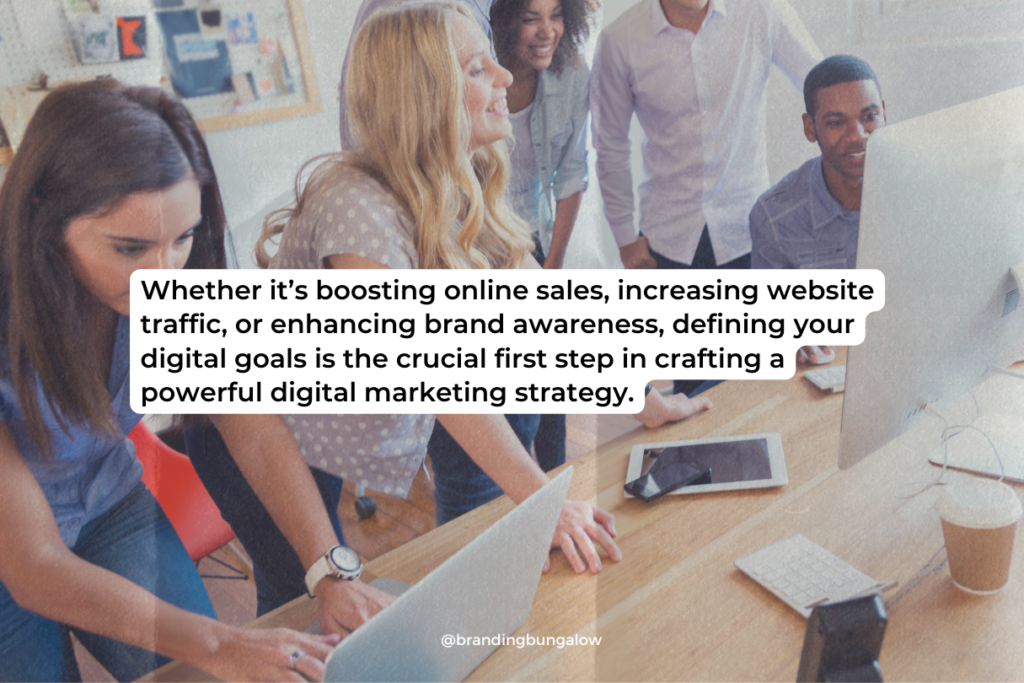
Heading into your digital marketing journey without a blueprint can be compared to navigating without a map. To traverse the digital waters successfully, small businesses need a well-architected plan that aligns with their specific goals and resources. This blueprint forms the backbone of your online marketing efforts. It guides you to make informed decisions, optimize your strategies, and measure your progress effectively.
Defining Your Digital Goals
Setting clear, measurable, achievable, relevant, and time-bound (SMART) goals is a vital part of plotting your digital journey. These goals serve as beacons, ensuring every tactic deployed contributes towards a unified destination.
Whether it’s boosting online sales, increasing website traffic, or enhancing brand awareness, defining your digital goals is the crucial first step in crafting a powerful digital marketing strategy and executing a successful digital marketing campaign.
Profiling Your Ideal Customer
Comprehending your ideal customer’s preferences is fundamental for customizing your digital marketing strategies. By profiling your target audience and creating a detailed buyer persona, you’ll be able to craft a website and marketing messages that resonate deeply. Thus, you influence their online behavior and foster a positive customer experience.
This personal touch is the secret to not only attracting but also retaining existing customers and optimizing the customer journey.
Allocating Your Marketing Budget
When working with a limited budget, it becomes pivotal to explore cost-effective avenues in digital marketing. Allocating your marketing budget wisely between paid and free resources such as marketing campaigns, blogging, or organic social media can make all the difference.
Consider using free tools like HubSpot Marketing Free to capture leads and follow up with compelling offers that convert website visitors into customers.
Establishing a Strong Online Presence
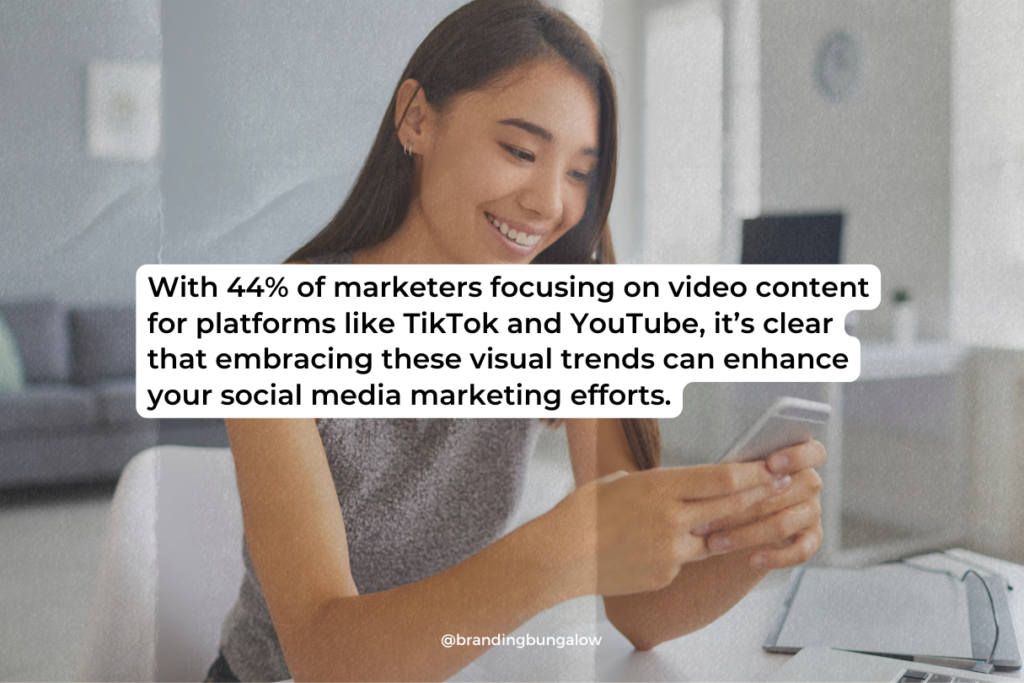
Within the expansive digital landscape, maintaining a strong online presence acts as a beacon, leading customers to your platform. It’s about building trust, legitimacy, and visibility, making it easier for your target audience to find and engage with your brand.
Creating a Professional Website
The anchor of your digital presence is a professional website that is both visually appealing and functional. A user-friendly, mobile-optimized website is not just about making a good first impression. It’s also about providing a seamless experience for visitors, which in turn, can boost your search engine rankings.
Consider using a Content Management System (CMS) for easy customization or hiring a freelancer to ensure your site is up to par with the best UX practices.
Leveraging Local SEO Practices
Local SEO, a key aspect of search engine optimization, acts as a guide, directing local customers to your business, even in the absence of a website. By optimizing your Google Business Profile with essential information like your address and business hours, you can significantly increase your visibility in local searches, especially within the “local pack” section of search results.
Engaging on Social Media Platforms
When it comes to navigating the social media waters, engagement is paramount. It’s about choosing the right social media channels, whether it’s the visual appeal of Instagram or the community feel of Facebook, and creating content that resonates with your audience.
With 44% of marketers focusing on video content for platforms like TikTok and YouTube, it’s clear that embracing these visual trends can enhance your social media marketing efforts.
Content Marketing: Fuel for Your Online Growth
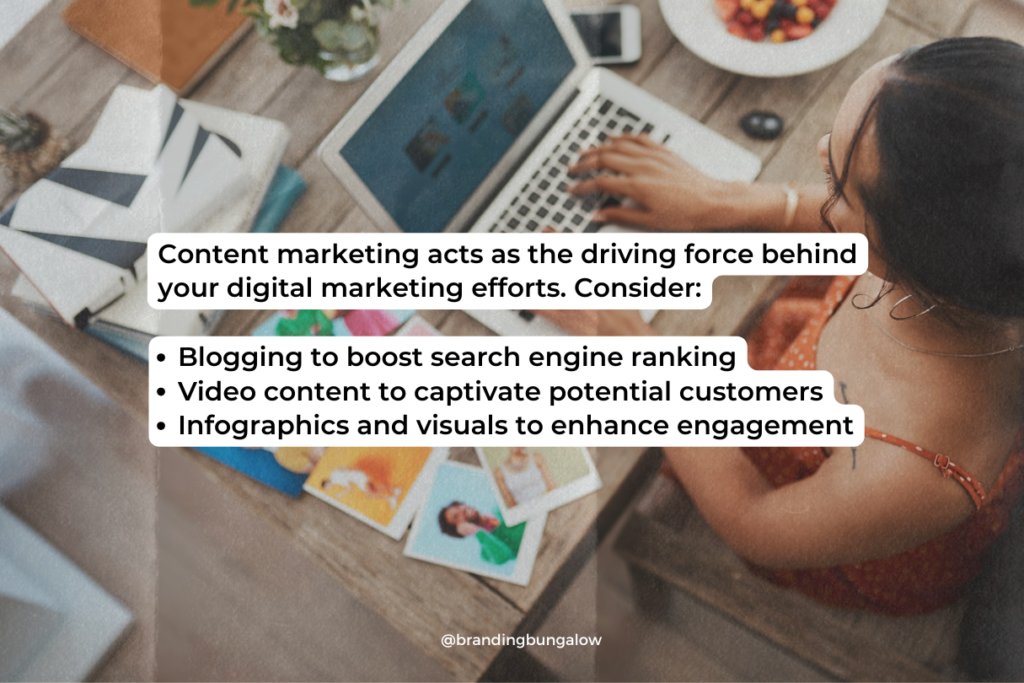
Content marketing acts as the driving force behind your digital marketing efforts. It engages your target audience with valuable and consistent content.
Blogging to Boost Search Engine Ranking
Blogging serves as a signal to search engines, highlighting your site’s relevance and authority. By crafting comprehensive blog posts that address the full spectrum of a topic, you’re more likely to climb the search engine rankings and attract organic traffic.
Incorporating videos and updating old posts with fresh perspectives can further bolster your blog’s SEO.
Video Content to Captivate Potential Customers
The captivating allure of video content cannot be overstated. In an era where attention spans are short, your videos must seize interest within the first few seconds. Storytelling and authenticity can make your brand memorable and trustworthy, leading to increased engagement.
Infographics and Visuals to Enhance Engagement
Infographics and visuals serve as eye-catching elements, capturing your audience’s attention. Humans are visual creatures. By employing striking graphics, you can evoke emotions and convey your message more effectively, leading to heightened engagement and customer interactions.
Email Marketing: Building Relationships with Your Audience
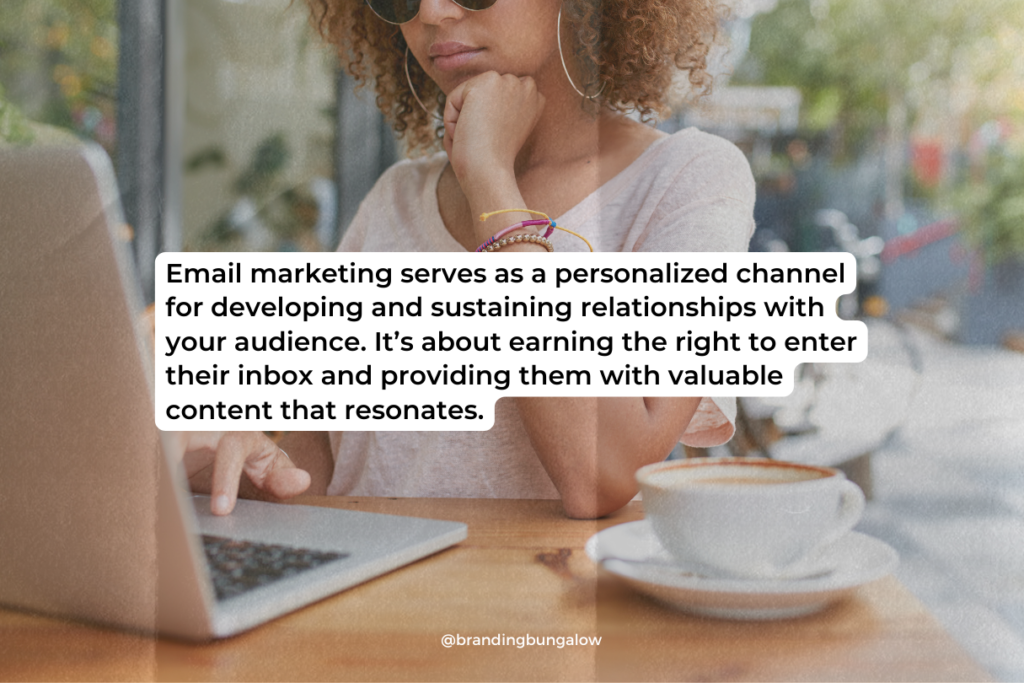
Email marketing serves as a personalized channel for developing and sustaining relationships with your audience. It’s about earning the right to enter their inbox and providing them with valuable content that resonates.
Crafting Compelling Email Campaigns
To craft compelling email campaigns, you must find the sweet spot between being informative and overwhelming. With a majority of email opens happening on mobile devices, your campaigns should:
- Be concise
- Be personalized
- Be conversational
- Feature clear incentives to engage your audience.
Segmenting Your Email List for Personalization
Segmenting your email list allows you to:
- Create a unique path for each audience group
- Target them with messages tailored to their interests and behaviors
- Personalize transactional emails to respond to customer actions, making each communication feel tailored and relevant.
Analyzing Email Metrics for Improved Performance
To improve your email marketing performance, you must keep a watchful eye on metrics like open rates, click-through rates, and conversion rates. These numbers offer invaluable insights into what resonates with your audience, guiding future campaigns towards greater success.
Paid Advertising: Accelerating Your Business Reach
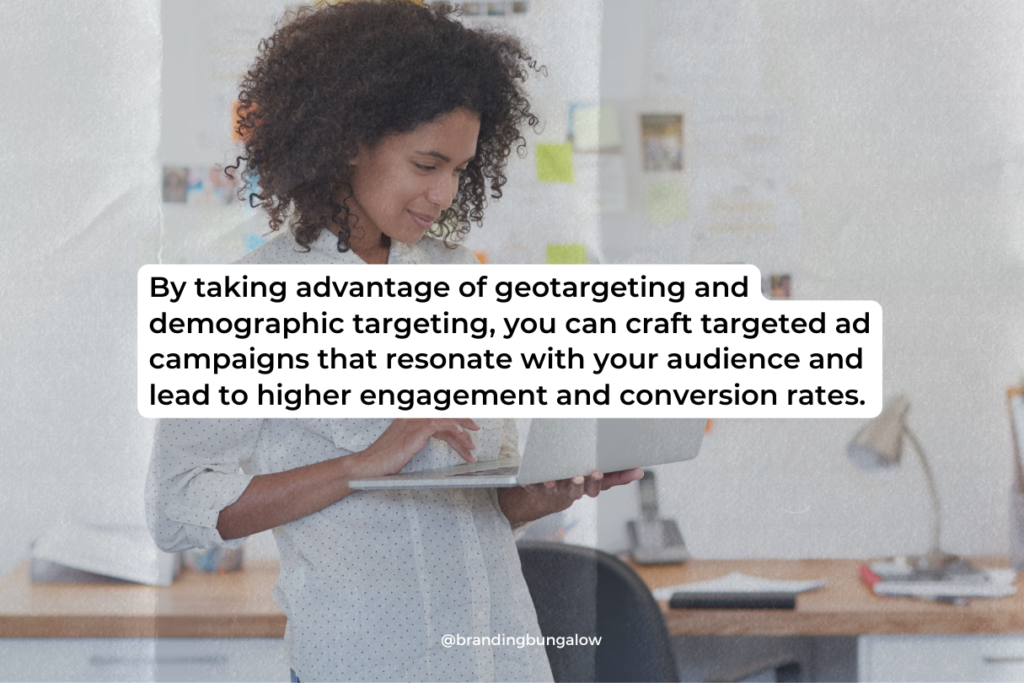
Paid advertising functions as a catalyst. It rapidly expands your business’ reach and exposes your products or services to a wider audience.
Choosing the Right Platforms for Your Ads
The strategic decision of selecting the most suitable platforms for your ads should be in line with your distinct business objectives. Whether it’s brand awareness or lead generation, each platform offers unique advantages and should be selected with your target audience in mind.
Setting Up Targeted Ad Campaigns
Creating targeted ad campaigns requires an understanding of mobile ad targeting options and the pay-to-play landscape. By taking advantage of geotargeting and demographic targeting, you can craft campaigns that resonate with your audience and lead to higher engagement and conversion rates.
Measuring Ad Performance and ROI
Evaluating the performance and ROI of your ads is vital to comprehend their effect on your business. Assessing direct revenue growth and indirect results like new email subscribers gives you a comprehensive view of your advertising’s effectiveness.
Social Media Marketing: Engaging with Your Community
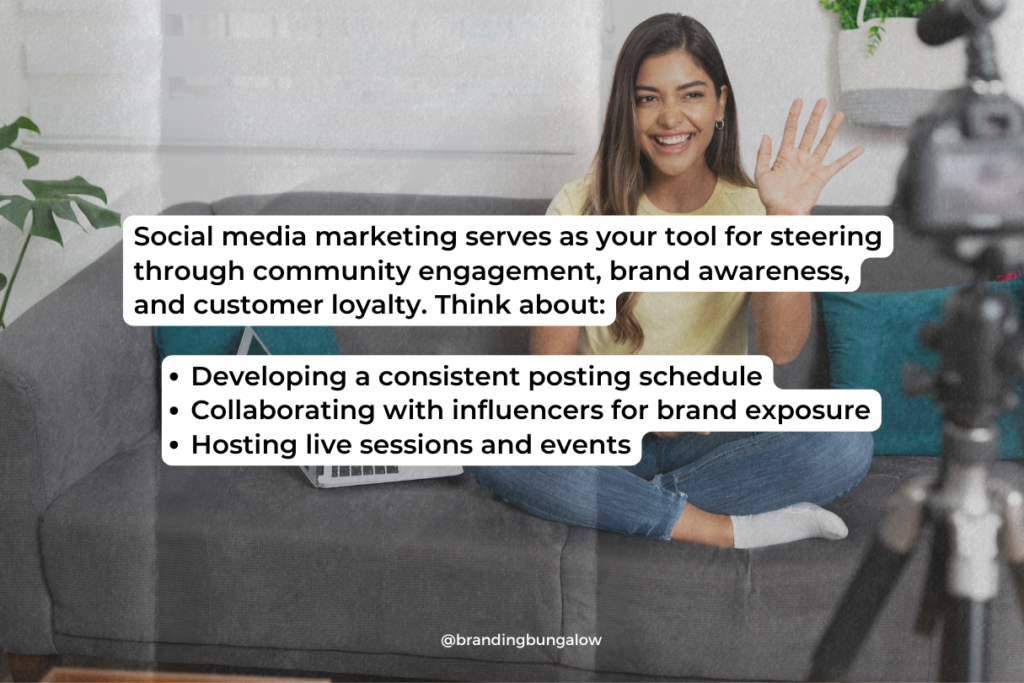
Social media marketing serves as your tool for steering through community engagement, brand awareness, and customer loyalty.
Developing a Consistent Posting Schedule
Maintaining a consistent posting schedule acts as your guide for effective social media navigation. By using a content calendar and planning around monthly themes, holidays, and current events, you can maintain a steady course of engaging content that resonates with your audience.
Collaborating with Influencers for Brand Exposure
Collaborating with influencers is like catching a favorable wind that can quickly expand your reach. By partnering with influencers in your niche, you can tap into their audiences and gain exposure rapidly, especially on emerging platforms like TikTok that resonate with younger demographics.
Hosting Live Sessions and Events
Hosting live sessions and events can be likened to throwing a grand party, where you invite your community to participate in real-time. Incorporating interactive elements and collaborating with local businesses can create dynamic experiences that deepen the connection between your audience and your brand.
Monitoring Your Online Marketing Success
In the realm of digital marketing, it’s important to keep a vigilant eye on your successes and learn from your past experiences. Utilizing tools and focusing on quantifiable metrics is essential for steering your strategies in the right direction.
Utilizing Google Analytics for Website Insights
Google Analytics functions as your watchtower, providing an overview of website traffic and user behavior. By tracking your audience’s demographics and traffic sources, you can ensure your efforts are effectively targeting the right people.
Keeping Tabs on Social Media Metrics
Keeping track of social media metrics can guide your content strategy and provide insights on how to more effectively engage your audience. Engagement and reach metrics provide a complete picture of your social media performance, informing future content creation.
Understanding Customer Journey and Conversion Paths
Understanding the customer journey and conversion paths is akin to exploring new territories. A CRM system can help you keep track of customer interactions and behaviors, providing insights into how to effectively guide them towards making a purchase.
Summary
As we dock at the end of our voyage, it’s clear that digital marketing is a vast and dynamic ocean, teeming with opportunities for those who are prepared to navigate its waters. From crafting a robust marketing blueprint to engaging with your community on social media, the strategies discussed here are your sails and rudder, guiding your small business towards online success. With the right tools and a spirit of innovation, the digital realm is yours to conquer. Now, set sail and let your marketing journey begin!
Frequently Asked Questions
How much of my small business’s gross revenue should I allocate for marketing?
You should allocate between 9-12% of your gross revenue for marketing, but adjustments can be made to align with your specific business goals and needs. This guidance can help you create an effective marketing budget.
Is a professional website necessary if I’m already active on social media?
Yes, a professional website is necessary because it acts as the central hub for your business information and helps establish credibility beyond social media platforms. It can significantly contribute to generating organic traffic.
Can blogging really improve my website’s search engine ranking?
Absolutely, blogging can significantly enhance your website’s search engine ranking by creating comprehensive, in-depth posts and consistently updating your content with relevant information. So, get ready to see the positive impact on your website’s SEO!
What metrics should I focus on to measure the success of my email marketing campaigns?
To measure the success of your email marketing campaigns, focus on open rates, click-through rates, and conversion rates. These metrics will provide valuable insights for optimizing your future email strategies.
How can I determine the effectiveness of my paid advertising?
To determine the effectiveness of your paid advertising, assess the return on investment (ROI) by looking at direct revenue growth, indirect outcomes such as gaining new email subscribers, and analyzing industry-standard costs like CPC and CPM across different platforms to optimize ROI. Happy advertising!
Recent Blog Entries
Discounts to Dubsado CRM, Helcim Payment Processing and...
Brand audits can save your business' sinking marketing ship.
What's happening to Coke and what you can learn from it.
Shop Products
Create a personalize brand board by taking elements from our 3 signature brand board templates.